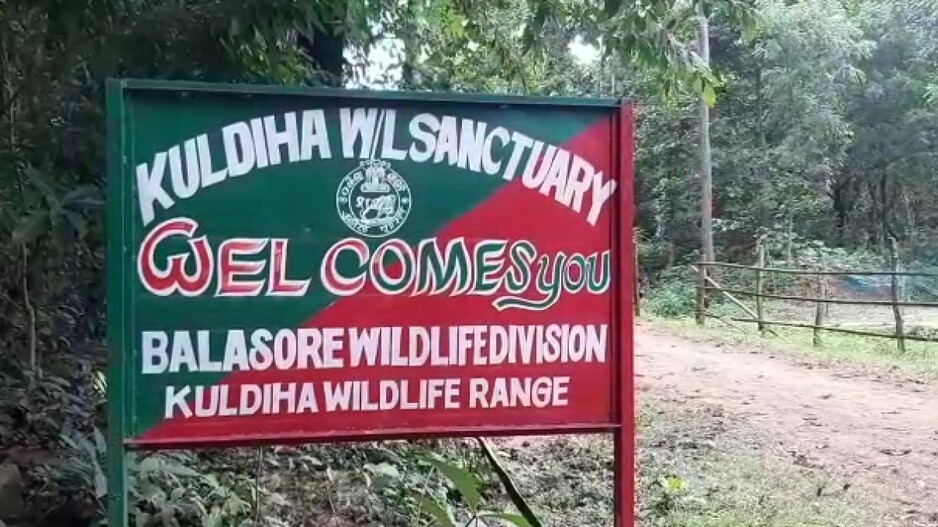
11-Jun-2025 11:00 AM
Kuldiha Wildlife Sanctuary: Odisha’s Hidden Forest Gem
📌 Latest Update: Crackdown on Poaching
In a recent confrontation between forest guards and poachers at Kuldiha Wildlife Sanctuary in Balasore, Odisha, one poacher was caught while another managed to escape. This incident once again underscores the challenges of protecting India’s rich but vulnerable wildlife from illegal activities.
Where is Kuldiha Wildlife Sanctuary Located?
Kuldiha Wildlife Sanctuary is nestled in the Balasore district of Odisha, in the Eastern Ghats, making it a key ecological zone. Spanning 272 square kilometers, it lies in the Chota Nagpur Plateau region and connects to the Simlipal Tiger Reserve via the Nato and Sukhupada hill ranges.
This geographic connectivity makes it an important part of the Similipal-Kuldiha-Hadgarh Elephant Reserve, a protected corridor vital for the safe movement of elephants and other large mammals across eastern India.
What Makes Kuldiha Special? A Look at its Forests
The sanctuary is known for its coastal Sal forests and moist mixed deciduous forests, making it a unique representation of Eastern India’s forest types.
Flora Found in Kuldiha:
The forest is rich in native plant species such as:
Sal (Shorea robusta)
Jamun (Syzygium cumini)
Piyasal (Pterocarpus marsupium)
Bahera (Terminalia bellirica)
Mango (Mangifera indica)
Simul (Bombax ceiba)
These trees not only sustain the region’s biodiversity but also support local livelihoods and traditional medicine practices.
A Safe Haven for Wildlife
Kuldiha is home to an impressive variety of wild animals, many of which are classified as threatened or endangered. This makes the sanctuary an essential area for wildlife conservation.
Key Mammals:
Asiatic Elephants – large herds roam freely through the park.
Indian Leopard
Gaur (Indian bison)
Mouse Deer
Pangolin
Ratel (Honey Badger)
Giant Squirrel
Birdlife Highlights:
Kuldiha is also a paradise for birdwatchers, with species like:
Hill Myna
Hornbills
Woodpeckers
Eagles
Their presence points to the healthy condition of the ecosystem and the sanctuary’s importance as a breeding ground for many avian species.
Waterways and Ecosystem Health
The Kuldiha stream and its tributaries form an internal water network that nourishes the sanctuary and supports both flora and fauna year-round. These streams are essential, especially during dry months, as they provide water to both wildlife and forest guards on patrol.
Conservation Challenges
Despite its ecological richness, the sanctuary faces threats from poaching, illegal grazing, and encroachment. The recent incident of armed confrontation reminds us of the urgent need to boost forest protection, anti-poaching intelligence, and community engagement.
Kuldiha Wildlife Sanctuary – MCQs
1. In which state is Kuldiha Wildlife Sanctuary located?
A) Jharkhand
B) Chhattisgarh
C) Odisha
D) West Bengal
✅ Answer: C) Odisha
2. Kuldiha Wildlife Sanctuary is part of which larger conservation area?
A) Nilgiri Biosphere Reserve
B) Similipal-Kuldiha-Hadgarh Elephant Reserve
C) Kanha National Park Zone
D) Sunderban Delta Corridor
✅ Answer: B) Similipal-Kuldiha-Hadgarh Elephant Reserve
3. Which of these animal species is commonly found in Kuldiha?
A) Royal Bengal Tiger
B) Asiatic Elephant
C) Snow Leopard
D) Red Panda
✅ Answer: B) Asiatic Elephant
4. The forest type found in Kuldiha Wildlife Sanctuary includes which of the following?
A) Alpine Forest
B) Thorn Scrub Forest
C) Moist Mixed Deciduous and Sal Forest
D) Mangrove Forest
✅ Answer: C) Moist Mixed Deciduous and Sal Forest
5. Which of these birds is an endangered resident of Kuldiha?
A) Peacock
B) Hill Myna
C) Sparrow
D) Penguin
✅ Answer: B) Hill Myna